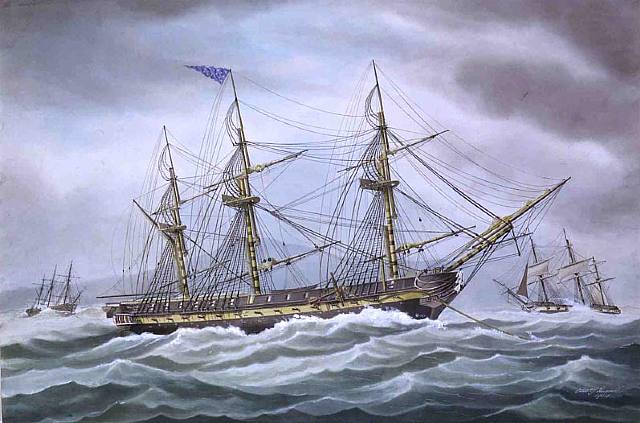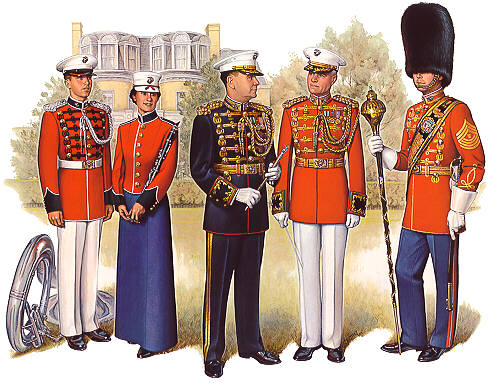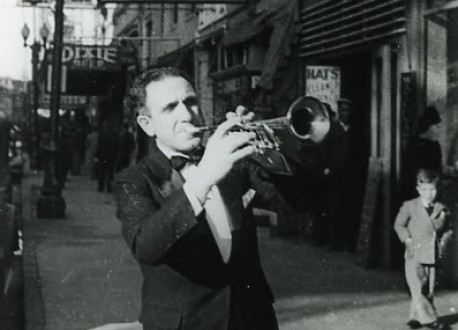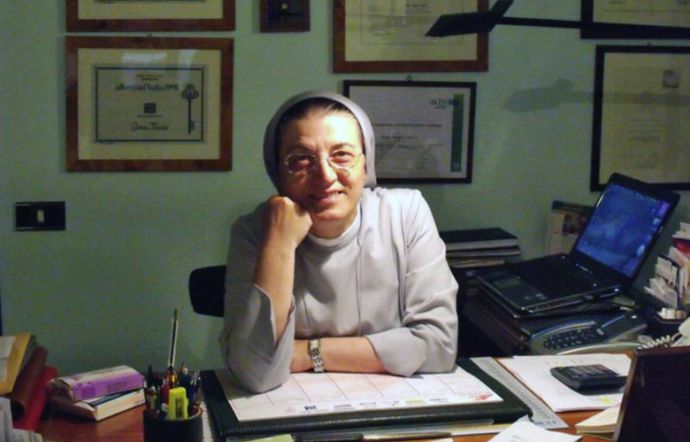From Catania to USA: the “Sicilian Marines’” crossed paths and the rise of jazz
Professor Martinelli’s research reveals the event concerning 18 musicians from Catania enlisted in the Marine Band in 1805, the USA President’s favourite band
In February 1917, a century ago exactly, the Sicilian Nick La Rocca recorded what is considered as the first jazz LP in history. A hundred years later we understand that there is still much more to discover about the origin of this genre, which fascinates old and new generations, thanks to professor Francesco Martinelli’s engaging story that raises new issues. Professor of History of Jazz and Director of the Arrigo Pollilo Archive located in Siena Jazz, Martinelli held a conference, wanted by the “Catania Jazz” association, in the “Monastero dei Benedettini” about a non-well-known event about a lot of people from Catania who became American Marines.
THE ANTECEDENT. The story began on the 4th July 1776 when 13 States approved the Declaration of Independence of the United States of America. The new government soon provided itself with a military marine unit which included a band, the Fife and Drum Corp, characterized by instruments which traditionally occurred in European military corps, that is, major fife, fifes and drums. Thomas Jefferson, father of the new American nation and third President of the USA, was not satisfied with that military music which he certainly considered rough compared to the European and Italian repertoire which he loved particularly. Therefore, he decided to send Capitan John Hall in Verdi’s homeland to enlist new marines among the most able musicians. Meanwhile the Berber war raged across the seas: the American States, independent already, were not protected by the English economic agreement, so their ships were often captured by the North African inhabitants. So, they asked the Kingdom of Sicily for support and obtained it, being allowed to use the ports of Palermo and Syracuse.

The frigate “President” on which the musicians from Catania travelled
THE ENLISTMENT. Right in the island Capitan John Hall found the musicians whom he thought to be the right ones, even though it was not very easy. In a letter dated 28th February 1805, Hall wrote: «I was forced to give 50 dollars to the head, 10 dollars prize to the rest and 8 dollars to the wives as compensation, otherwise I would have not been able to engage anyone». This musicians were the director Gaetano Carusi, three of his sons (ten-year-old Samuele, nine-year-old Ignazio and eight-year-old Gaetano), Francesco and Felice Pulizzi with their sons Venerando and Giacomo, together with Giacomo, Michele and Gaetano Sardo, Ignazio Di Mauro, Domenico Guarnaccia, Salvatore Lauria, Pasquale Lauria, Giuseppe Papa, Antonio Paternò e Corrado Signorello; the name of Filippa, Gaetano Carusi’s wife, is not mentioned in the official papers, even though it seems that she was part of the band, like perhaps some other of the official members’ wives. All of them were not only musicians, because they were enlisted as fully-fledged marines and so, in addition to make official oaths, they had to take part in the war too.
THE ARRIVAL AT WASHINGTON. In September 1805 the Sicilians arrived at Washington and found a totally different reality compared to that of the capital city as we know it today, a city which was still under construction. In the meanwhile, the change regarding the military authorities made the situation even more difficult: a new commander was appointed and he refused to recognize Carusi as director. The other musicians grew more and more discouraged because of their difficult life conditions, so that only a scarce number kept the original oath of three years service: many left soon and others went back to Sicily.
 SICILIAN CONTRIBUTIONS TO THE AMERICAN MUSIC SCENE. Venerando Pulizzi was one of the few exceptions: he remained in the band for 21 years and became the director for the first time in 1816, when he was only 21 years old, and then since 1818 until 1827. His son joined the Marines too, but he was expelled for a dark incident and then asked for readmission in order to fight the Southerners (evidence of it was found in a letter written by Lincoln, where he demanded to reintegrate Venerando Pulizzi Jr in the Marine military unit). It seems that also the Sardo family, that now lives in California, continued to take part in the Military Corp, because a letter signed by Lincoln bears witness to this.
SICILIAN CONTRIBUTIONS TO THE AMERICAN MUSIC SCENE. Venerando Pulizzi was one of the few exceptions: he remained in the band for 21 years and became the director for the first time in 1816, when he was only 21 years old, and then since 1818 until 1827. His son joined the Marines too, but he was expelled for a dark incident and then asked for readmission in order to fight the Southerners (evidence of it was found in a letter written by Lincoln, where he demanded to reintegrate Venerando Pulizzi Jr in the Marine military unit). It seems that also the Sardo family, that now lives in California, continued to take part in the Military Corp, because a letter signed by Lincoln bears witness to this.
CARUSI’S ACCIDENT. Maestro Gaetano Carusi, as Martinelli explained, left the band immediately, because he would have not accepted another role apart from the one as director. He tried to reach Sicily, but he had to come back to Washington because of many unlucky events. There, with the help of his family he turned an old theatre into the Carusi Saloon, a centre of the city cultural life and a dance floor where new presidencies could be inaugurated. Carusi brothers, like their father, were performers, musicians, arrangers and dance teachers, and their repertoire included some chamber music of the XVIII century. Among the three young men, Samuel acquired celebrity for a scandal, he became famous for copyright violations. It happened between 1830 and 1840 when the popular pre-jazz music was widespread in America, when songs like Stephen Foster’s Oh! Susanna were known all over the country; Samuel arranged the words of an earlier poetry to a soundtrack composed by another musician, the song’s title is Old arm chair and the complaint for plagiarism arrived immediately.

The trumpeter Nick La Rocca
THE ITALIAN INFLUENCE ON THE AMERICAN MUSIC AND THE RISE OF JAZZ. But the latters are not the only fellow countrymen who enriched the American music heritage; during the XIX century there were 700 Italian directors, such as Lucchesi, Scala, Fanciulli who was the creator of the New York Band, Francesco Masi of the Italian Band playing in Boston in 1816, so the American historians talked about a true “Italian invasion”. This Italian influence got mixed with the Afro-American one, especially during the Secession War years, when the first Afro-American regiment and its band were created. This fact involved the use of Afro-American and Creole instruments for the first time, like trumpet, oboe, snare drum, cymbals. The hotbed of New Orleans did the rest.
A MUSIC SCHOOL FOR CATANIA. Starting from professor Martinelli’s studies, the associations “Catania Jazz” and “Cesm” launched a crowdfunding campaign in order to found a music school named after John Hall and Venerando Pulizzi in the popular neighborhood called Picanello of Catania.
Translated into English by Daniela Marsala



